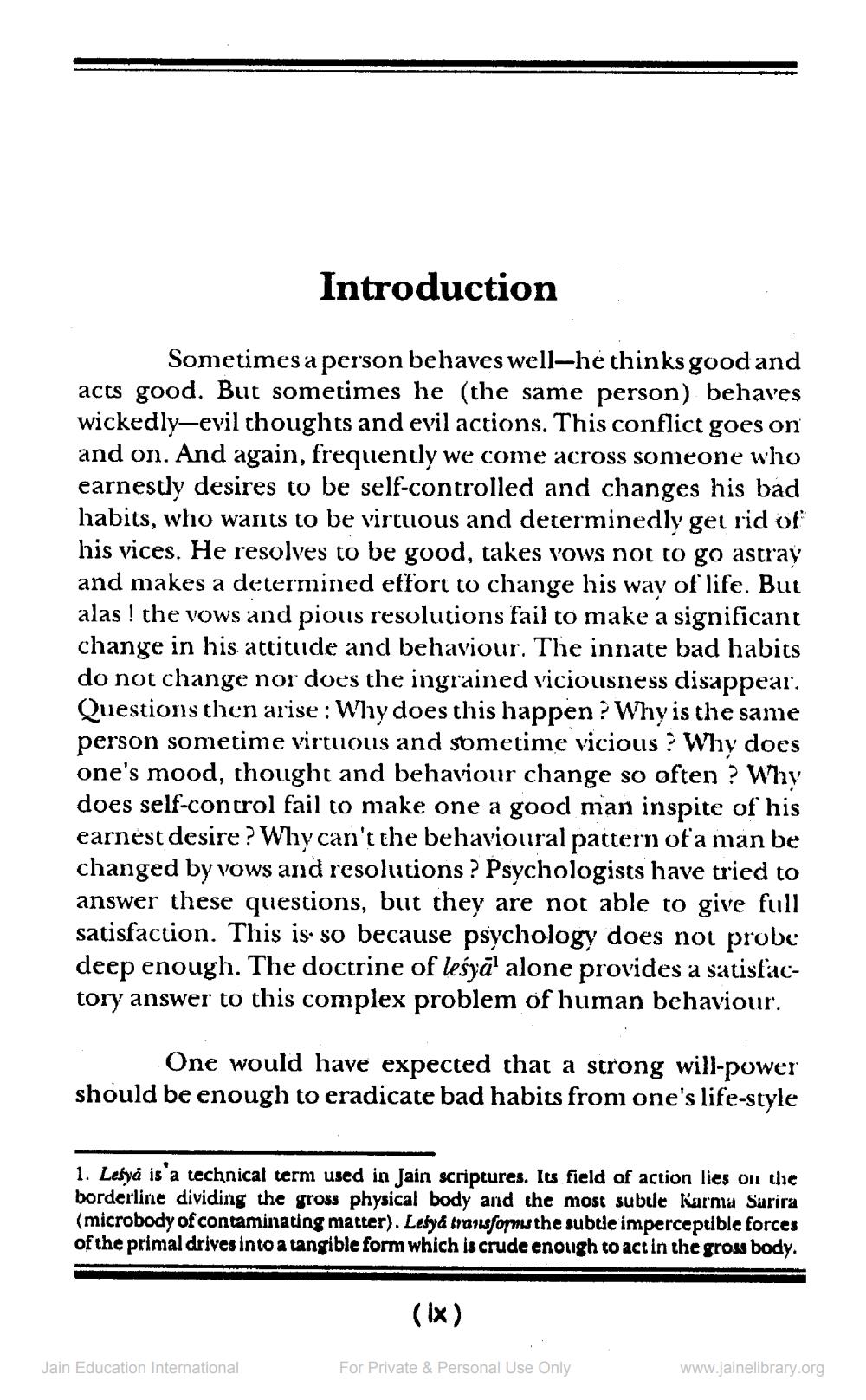________________
Introduction
Sometimes a person behaves well-he thinks good and acts good. But sometimes he (the same person) behaves wickedly-evil thoughts and evil actions. This conflict goes on and on. And again, frequently we come across someone who earnestly desires to be self-controlled and changes his bad habits, who wants to be virtuous and determinedly get rid of his vices. He resolves to be good, takes vows not to go astray and makes a determined effort to change his way of life. But alas ! the vows and pious resolutions fail to make a significant change in his attitude and behaviour. The innate bad habits do not change nor does the ingrained viciousness disappear. Questions then arise: Why does this happen? Why is the same person sometime virtuous and sometime vicious ? Why does one's mood, thought and behaviour change so often ? Why does self-control fail to make one a good man inspite of his earnest desire? Why can't the behavioural pattern of a man be changed by vows and resolutions ? Psychologists have tried to answer these questions, but they are not able to give full satisfaction. This is so because psychology does not probe deep enough. The doctrine of leśyāl alone provides a satisfactory answer to this complex problem of human behaviour.
One would have expected that a strong will-power should be enough to eradicate bad habits from one's life-style
1. Lesya is a technical term used in Jain scriptures. Its field of action lies on the borderline dividing the gross physical body and the most subtle Karma Sarira (microbody of contaminating matter). Lesya transforms the subtle imperceptible forces of the primal drives into a tangible form which is crude enough to act in the gross body.
-
(lx)
Jain Education International
For Private & Personal Use Only
www.jainelibrary.org




